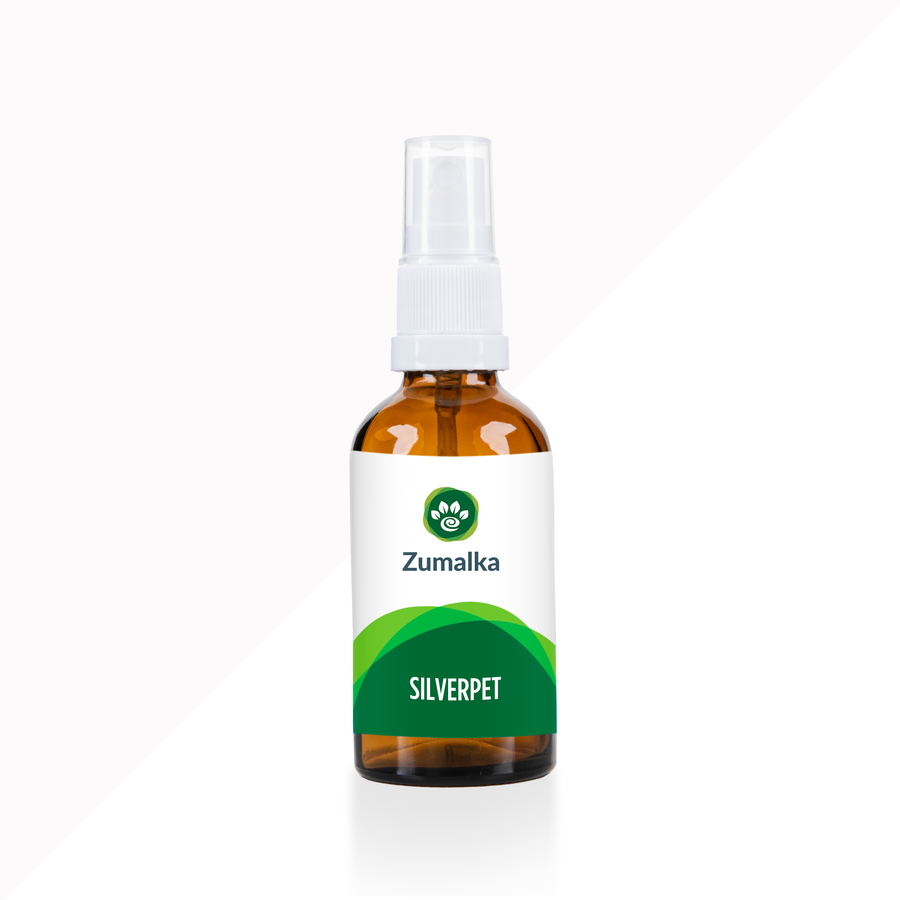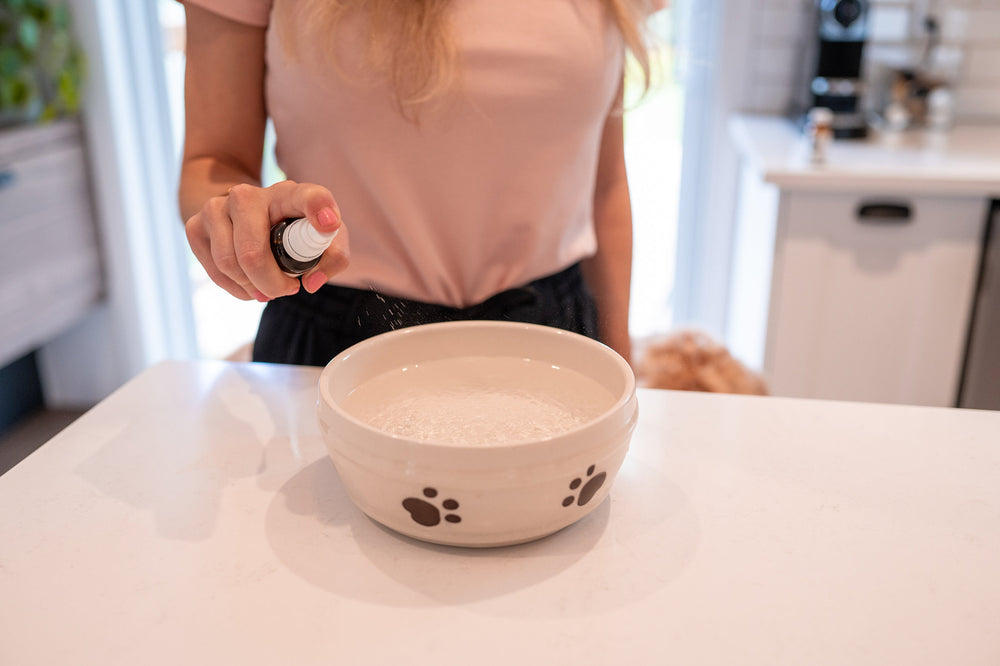Heart Murmur in Cats: Vet-Approved Natural Treatments
Heart murmurs in cats can be tricky to understand, but you’ve come to the right place! Today, I’ll cover everything you need to know about heart murmurs in cats, including key points on heart disease and treatment.
Heart Murmur in Cats Explained by a Vet!

Heart murmurs are abnormal sounds that veterinarians often detect when they listen to a cat's chest. These murmurs indicate turbulent blood flow within the heart's chambers, typically heard as a "whooshing sound." In cats, heart murmurs can be either physiological or pathological.
A pathological feline heart murmur indicates a likely structural anomaly in the heart, which, if left unchecked, may lead to cardiac disease.
A pathological heart murmur is present continuously, unlike a physiological or "physiologic" murmur that may only occur intermittently.
In cats, the three most common pathological congenital heart defects are pulmonic stenosis, patent ductus arteriosus, and, most notably, hypertrophic cardiomyopathy.
Not all feline heart murmurs are bad…
Just because a cat has a heart murmur doesn’t mean they will develop severe heart disease. An innocent heart murmur, also known as a benign murmur, is a non-pathological murmur that can occur in cats of any age.
For example, kittens may have an "innocent heart murmur" due to the large volume of blood passing through their very small blood vessels. Most innocent heart murmurs in young kittens disappear by 5 to 6 months of age.
Hypertrophic Cardiomyopathy in Cats
Hypertrophic cardiomyopathy (HCM) is one of the most common structural heart diseases in cats. It is characterized by hypertrophy, or thickening, of the left side of the heart, specifically causing the wall of the left ventricle to thicken.
As the left ventricle wall thickens, it alters the heart’s structure and function. The excessive thickening prevents the ventricle from fully relaxing, which means it can't fill with enough blood.
This inability to relax leads to a buildup of blood in the pulmonary circulation, causing leaky blood vessels and eventually resulting in left-sided congestive heart failure.
Hyperthyroidism
Non-cardiac diseases can also cause heart murmurs, with feline hyperthyroidism being a prime example. Elevated thyroid hormone levels in hyperthyroid cats can lead to high blood pressure, which is believed to cause turbulent blood flow and result in quite loud murmurs.
Clinical Signs of Heart Murmurs in Cats
Heart murmurs can be detected in young kittens, healthy adult cats, or senior felines through auscultation with a stethoscope.
Typically, heart murmurs do not present any common symptoms. However, if your cat has suspected heart disease, they may exhibit the following signs:
- Exercise intolerance
- Coughing (often a soft cough)
- Increased respiration rate
The Consequence of Feline Heart Disease

If your veterinarian detects a heart murmur in your cat, it's important to discuss further diagnostics. A murmur typically indicates an underlying health issue, so understanding your cat's prognosis is crucial, even if they seem completely pain-free.
Pathological heart disease can be fatal if left untreated, leading to conditions like saddle thrombus or congestive heart failure. This is why preventive medication is crucial. Both topics will be discussed below.
Saddle thromboembolism in cats
Untreated heart disease can lead to congestive heart failure, as discussed below, and significantly increases the risk of saddle thromboembolism. Feline aortic thromboembolism (FATE) is a blood clot in the aorta that blocks blood flow to the back legs, often resulting in sudden paralysis, severe pain, and, frequently, fatality.
Understanding congestive heart failure in cats
Congestive heart failure occurs when fluid accumulates in certain parts of the body due to severe heart disease. The left side of the heart is responsible for pumping blood throughout the body and receiving oxygenated blood from the lungs.
If the left side of the heart fails due to conditions like mitral valve regurgitation or hypertrophic cardiomyopathy, blood vessels become leaky, causing fluid to accumulate in the lungs and chest cavity. This condition is known as left-sided congestive heart failure.
On the other hand, the right side of the heart is responsible for pumping deoxygenated blood back to the lungs after collecting it from the body.
When the right side of the heart fails, the blood vessels that drain into it become leaky, leading to fluid accumulation in the body. This condition, known as ascites, results in fluid buildup in the belly.
Still confused about congestive heart failure? Think of it like a garden hose!
When water flows through a garden hose at low pressure, only a small amount seeps out. However, if the pressure inside the hose increases, water gushes out rapidly, flooding your garden.
The same thing happens with blood vessels—under low pressure, only a small amount of fluid leaks out and is quickly reabsorbed. But if the pressure in your cat's heart is too high, a large amount of fluid leaks into the surrounding tissue, overwhelming the body’s ability to reabsorb it.
For example, in left-sided congestive heart failure, high blood pressure in the pulmonary system occurs because the heart struggles to pump blood effectively, leading to fluid leakage.
Give Your Cat's Heart the TLC It Deserves for Optimal Health
Zumalka's HEARTPET is a homeopathic solution designed to support your pet's heart and circulatory system. With powerful ingredients that strengthen heart muscles, HEARTPET promotes cardiovascular health and optimal blood flow, ensuring your pet's overall well-being.
Key ingredients include:
- Achillea millefolium (Yarrow): A plant believed to lower blood pressure.
- Cactus grandiflorus: An ancient remedy known to enhance heart muscle contractility.
- Crataegus oxyacantha: A cardioprotective herb that supports overall heart health.
Diagnosing Heart Murmur in Cats

Heart murmurs in cats often indicate structural heart disease or congenital defects and are diagnosed through auscultation with a stethoscope. Your veterinarian may recommend tests to identify the underlying issue.
NT pro-BNP
NT pro-BNP is a protein produced by the heart, especially under stress when the heart works harder. This test helps determine if a cat with a heart murmur has heart disease.
It's important to note that not all murmurs are pathological—some are innocent and won’t progress into disease. This blood test allows veterinarians to quickly assess the severity of a cat's heart murmur.
Echocardiography
If your veterinarian suspects a heart defect or underlying heart disease, they may refer you to a veterinary cardiologist for an echocardiogram.
Echocardiography is a specialized heart scan that allows cardiologists to assess all four chambers, blood flow, and detect heart defects. It’s the gold standard for diagnosing ventricular septal defects, heart valve issues, and hypertrophic cardiomyopathy (HCM) in cats.
Common Questions About Heart Murmur in Cats
Heart murmurs in cats can be a complex topic, so below, I’ll answer some of the common questions I receive about them.
What can be done for a cat with a clinically significant heart murmur?
Monitoring for heart disease is crucial, and you can do this by taking your cat to the veterinarian for yearly exams.
During each visit, your vet will assess the loudness and pitch of the murmur. Remember, not all murmurs are pathological, and not all progress to heart disease.
If heart disease is suspected, your vet may recommend the NT pro-BNP SNAP blood test to check for heart muscle stress.
What are the different types of heart medication for cats with heart problems?
If heart disease is confirmed after diagnostics and echocardiography, your veterinarian may prescribe several heart medications for your cat.
- Pimobendan: Increases heart muscle contractility, helping the heart pump blood more efficiently.
- Enalapril: A vasodilator that relaxes blood vessels, correcting high blood pressure.
- Furosemide: A diuretic commonly prescribed for congestive heart failure to prevent fluid retention.
- Clopidogrel: An anti-platelet medication that reduces the risk of thrombus formation.
How long will a cat live with a heart murmur?
If your cat has a heart murmur without signs of congestive heart failure, they can still live a fairly healthy, long life. However, if the murmur is accompanied by a diagnosis of heart disease, such as hypertrophic cardiomyopathy, their lifespan may range from 2 to 10 years.
To help your cat live a healthy, long life, it's important to routinely visit your veterinarian for physical exams, monitor the murmur for progression, and start medication when necessary. While structural heart disease in cats can't be cured, you can slow its progression and maintain a good quality of life for your pet.
Conclusion
Heart murmur in cats can be concerning, but not all murmurs indicate a serious issue. It’s important to discuss with your veterinarian how to best monitor your cat’s heart health and whether any treatments or medications are needed.







Leave a comment